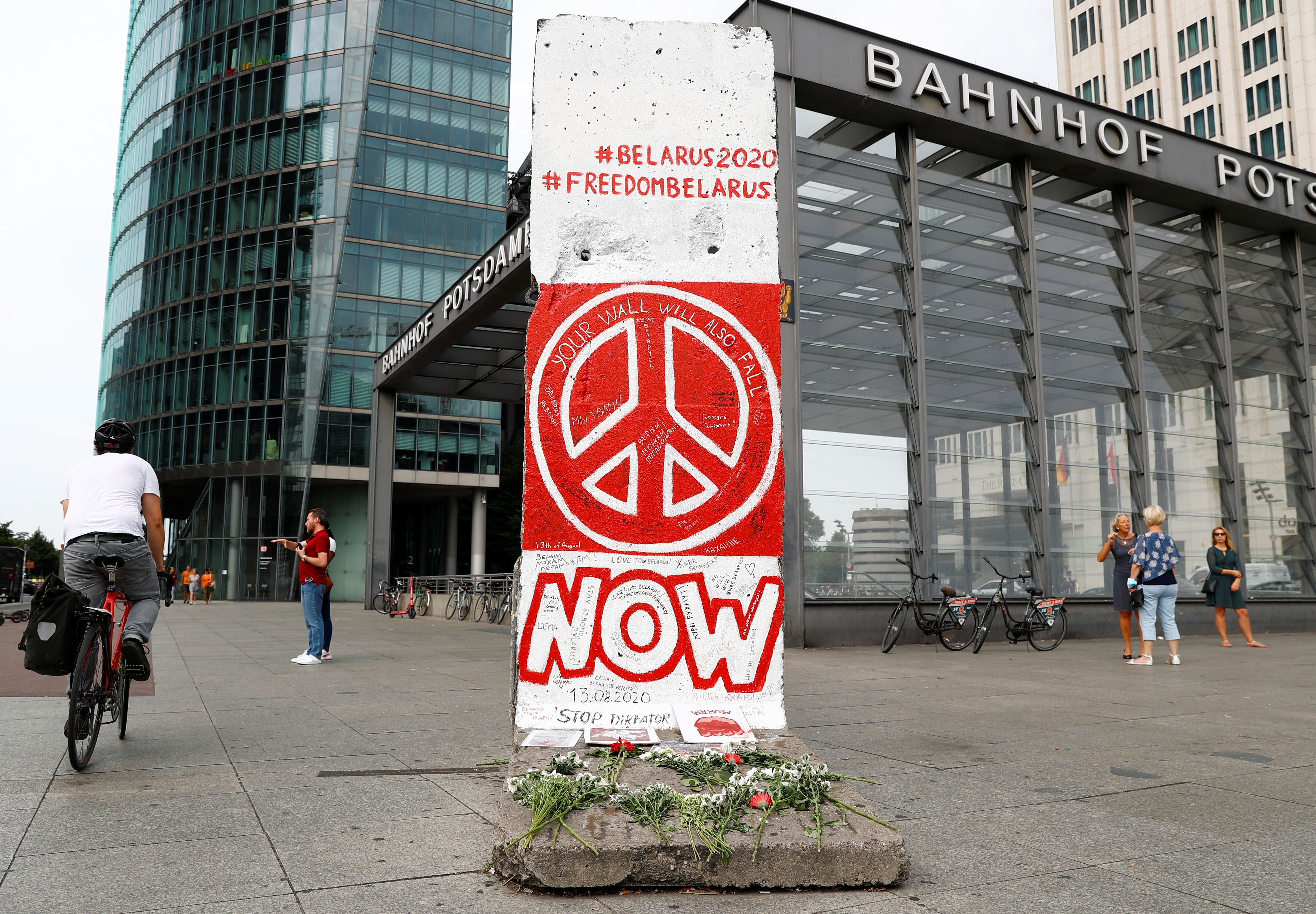Restrained Involvement: Germany and the Political Crisis in Belarus

Belarus in German Politics
Before the outbreak of the August protests, Germany’s actions towards Belarus were shaped by two premises. The first was the perception of Belarus as an authoritarian state, yet relatively stable. The second factor was the awareness of Belarus’s political and economic dependence on Russia, which meant that German policy towards the Belarusian authorities was a derivative of relations with the Russian Federation. That is why Germany acted conservatively, cautiously engaging, for example, in the Eastern Partnership programme, which from the German perspective could complicate cooperation with Russia. In addition to regular bilateral contacts, an additional platform for cooperation is the annual conference held since 2015 by the Minsk Dialogue expert initiative: one of the main organisers of the event is the Konrad Adenauer Foundation, and among the partner institutions is the Friedrich Ebert Foundation.
The German actions towards Belarus were part of the so-called changes through commitment, consisting of the expansion of social and cultural contacts, which, in principle, was to lead to gradual democratisation of the system. The activities of the three Goethe Institutes, as well as scholarships and exchange programmes available for pupils, students, and local government officials, help to support civil society while building a positive image of Germany. The latter also offers support in the form of official development assistance (ODA): OECD data show that in 2018, Germany was the third-largest ODA donor to Belarus, allocating $14 million for this purpose.
The economy is an important element of the German strategy towards Belarus. The presence of around 300 companies with German capital, including large enterprises BASF, Henkel, and Siemens, and the activity of the German chamber of industry and commerce are a sign of Germany’s interest in this market. In addition, to encourage small and medium-sized enterprises to expand their activities in Belarus, the German government offers them loans to support exports and guarantees securing investments.
Germany and the Crisis in Belarus
Given the political situation in Belarus, the strategic goal of Germany remains stable democratisation of the system that does not provoke violent events such as a civil war or military intervention by Russia. This strategy is based not only on the traditional approach to Belarus but also influenced by the scale of the problems faced by Germany during its presidency of the EU Council—confronting the economic downturn caused by the COVID-19 pandemic, escalation of the Greek-Turkish dispute, and problems with irregular migration to the EU—which distract Germany from becoming more involved in EU Eastern policy. An additional factor shaping the position of Germany is the tensions in German-Russian relations in connection with the poisoning of Alexei Navalny. As a result, the tools used so far in relation to the situation in Belarus have been aimed at forcing the Belarusian authorities to stop the brutal suppression of demonstrations and to engage in dialogue with the opposition.
The German government did not recognise results of the presidential elections, condemning them as rigged, and the pacification of the protests, and the Belarusian ambassador was summoned to the Ministry of Foreign Affairs. Germany also took steps to reintroduce sanctions partially lifted in 2016: on 28 August, during a special summit of EU foreign ministers, it was decided to extend the list of people banned from entering the territory of the EU and whose assets will be frozen. Germany so far proposes excluding President Lukashenka from this group. This is to allow the EU to maintain dialogue with the Belarusian authorities. The German authorities also called on Belarus to start negotiations with the opposition: they could take place within the OSCE, of which Belarus is a member. At the same time, Germany emphasizes that Belarusians must first and foremost decide about the future of the state.
Further Response Options
Germany has the possibility of tightening the course, which the Greens and the FDP are demanding. The rigging of the Belarusian elections and repression of the protesters was also condemned by the far left, die Linke. The AfD is the least critical of the events in Belarus: Waldemar Herdt, representing the party in the foreign affairs committee in the Bundestag, stressed that Belarusians should end the ongoing crisis on their own.
As a country holding the presidency of the EU Council and being the largest EU trade partner for Belarus, Germany could propose an extension of the current arms embargo, for example, to agricultural products, trucks, and machinery exported to the EU. However, there is a risk that such sanctions would mainly affect the Belarusian society and not the ruling elite. Germany could also make greater use of its membership in the UN Security Council to organise a second special meeting on the situation in Belarus (the first such meeting, on Estonia’s initiative, was held on 4 September). As part of supporting the opposition, Germany can offer political asylum to dissidents and scholarships for students forced to leave Belarus. The German government may also be interested in helping Belarusian companies (especially in the IT area), creating incentives for them to relocate their activities to Germany.
Putting pressure on Russia may also help to stabilise the situation in Belarus. The prospect of imposing sanctions on the Russian side in connection with the poisoning of Navalny, as well as increasingly loud demands to block the Nord Stream 2 project, would encourage Russia to influence the Belarusian authorities so that they limit the repression and start negotiations with the opposition. Moreover, Germany may be more willing to undertake actions that signal its greater involvement in regional security policy. This is how one should interpret the tightening of cooperation with Lithuania, one of the most committed EU countries in the matter of the crisis in Belarus. Manifestation of it is, for example, seen in the signing in July by the Lithuanian and German defence ministries of a special agreement concerning temporary stays of members of the armed forces of both countries on their territories. In September, Germany agreed to allocate €500,000 to support the construction of weapons storage facilities in Lithuania. The timing of the conclusion of the agreement with the political crisis in Lithuania’s neighbourhood may serve as a signal that Germany will support the security of NATO’s Eastern Flank and EU Member States.
Conclusions
The increasing brutality of the Belarusian government towards the protesters and the opposition will force Germany to use further means of putting pressure on Lukashenka’s administration, such as extending the embargo on Belarusian products. Failure to react to further repression would run counter to the moral dimension of foreign policy often emphasised by German politicians. A year out from parliamentary elections, this could lead to a decline in support for the ruling CDU/CSU and SPD in favour of the Greens, who criticize the situation in both Belarus and Russia much more boldly than the government.
The crisis in Belarus and the poisoning of Navalny pose a serious challenge to the strategy of “change through rapprochement”, which was one of the pillars of the traditional Ostpolitik. In the current situation, Germany can listen more carefully to the arguments raised, among others, by Poland about the need to change its policy towards Russia: to abandon the model of selective cooperation and to be more willing to sacrifice economic interests and exert pressure in the area of security to, for example, end the conflict in Donbas. Departure from this paradigm could mean greater readiness to expand cooperation with Eastern Partnership countries and Germany’s support for introducing into the programme initiatives that were not possible due to concerns about deteriorating relations with Russia. The first step in this direction could be gaining Germany’s support for economic solutions for Belarus, which Poland is to propose on behalf of the Visegrad Group countries at the next meeting of the EU Council. Such a programme could help overcome the political stalemate, repeat the elections, and implement reforms of the political system while at the same time being a step towards balancing Russian influence in Belarus.


